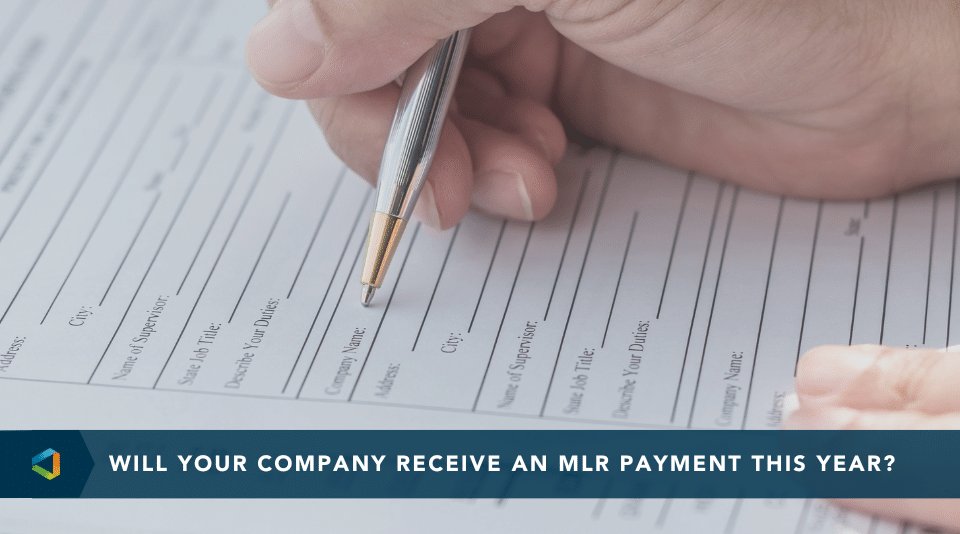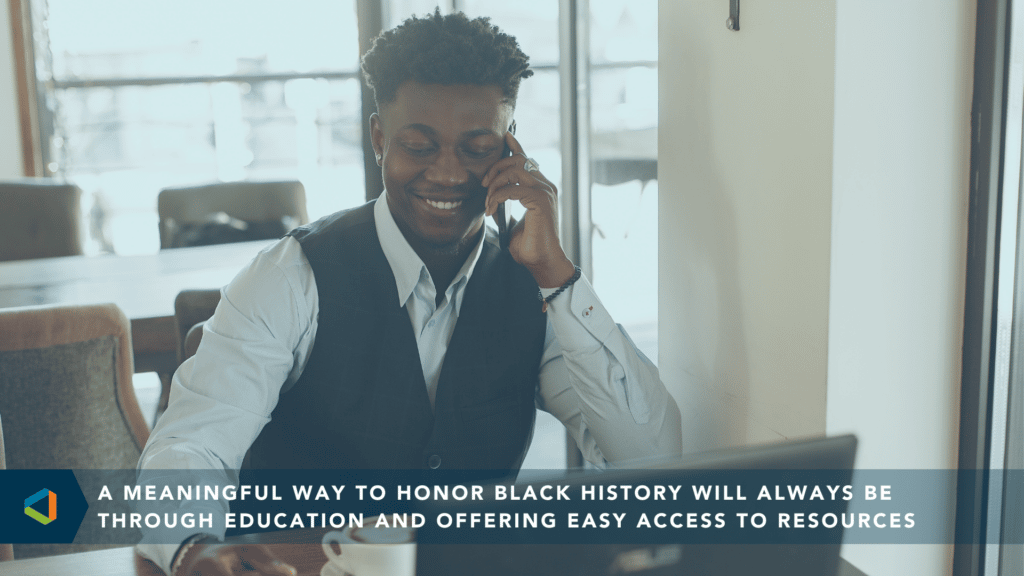No Headaches, Lower Costs
The Importance of Black History Month: Facing Financial Barriers Within the Community
The Importance of Black History Month: Facing Financial Barriers Within the Community
In February, we observe Black History Month, a month dedicated to celebrating Black and African Americans' rich history, diverse culture, and exceptional achievements.
This month-long celebration is a tribute to the past and a reminder of the resilience and spirit of a community that has faced and continues to face numerous challenges. It is also a time to reflect on the significant contributions of Black Americans in various sectors, such as the arts, science, politics, and literature, to name just a few. Black History Month commemorates hope, inspiration, and strength within a community that has faced countless roadblocks, discrimination, and adversity.
Although Black History Month is a time to celebrate, it is also a reminder of the current-day challenges and obstacles many Black Americans face, such as social inequality, economic disparity, and lack of financial security and resources. Unfortunately, these hurdles are not past issues but ongoing pain points that must be acknowledged, addressed, and corrected.
One of the most pertinent problems Black Americans still face is financial insecurity and an increasing wealth gap. As we commemorate the significance and impact of Black Americans in Black History Month, let us also shed light and acknowledge the financial barriers many still face and provide resources and insight on how to bridge the wealth divide and foster financial health among Black Americans.
Black Americans are More Likely to Face Economic Insecurity
In the past few years, Black Americans have experienced added financial turmoil due to the COVID-19 pandemic, record-high inflation, and ongoing rate hikes from the Federal Reserve.
Only 36% of Black adults say they have built out an emergency or rainy day fund that can cover at least three months of expenses in case of an economic downturn, unexpected sickness, job loss, or any other emergency that could occur. Seven in ten Black adults with higher income report having an emergency fund with at least three months of expenses, while 21% with lower incomes report having the same. Forty-four percent of middle-income Black adults report having a three-month emergency fund.
Eighteen percent of Black adults with lower income report not having enough money to meet their basic needs, while 43% say they have just enough to cover their basic financial needs. Thirty-eight percent of lower-income Black adults report having money left over at the end of the month.
Seventy-six percent of middle-class Black adults report having enough to cover their needs with money left over, while 93% with higher income report having enough to cover their expenses with money left over.
With many Black Americans not having enough money saved for an emergency fund, 15% of Black adults report working more than one job to make ends meet. Forty-five percent cite this additional income as critical, with 28% percent saying the combined income has helped them meet their financial needs. In addition, an estimated 1.3 million Black adults have less access to and knowledge of financial information and services.
Black Americans are less secure in their finances overall; however, there are three action steps you can take to help build a three-month emergency fund to increase financial wellness.
They are:
- Review your income and expenses: Track your expenses to see what you bring in. Understand and know how much money you make and where your money goes.
- Take advantage of cash windfalls: If you have extra money, such as a tax refund, gifts, or annual bonuses, this is a great way to kick-start your emergency fund.
- Automate your savings: This is an excellent way to build your savings over time. Set it and forget it. Set aside a certain amount of money from each paycheck and have it automatically go to a savings or high-yield savings account. It is more difficult to spend what you do not see and a great way to begin to build your emergency fund. Every little bit helps.
Here are some resources to help navigate budgeting and debt reduction:
- FAQs to Getting that Degree Debt-Free
- Simple and Effective Strategies for Paying off or Saving Up for a Degree
- Taking Control of Your Income Through Budgeting
- Budgeting Calculator
Retirement Savings Gap
Another core financial stressor for Black Americans is planning for retirement. Fifty-four percent of Black Americans do not have an adequate amount of savings set aside to retire. There are several reasons Black Americans are behind in retirement savings.
The most common are:
- Black employees are paid less compared to other demographics
- Black unemployment is higher
- Black workers are less likely to have access to an employer-sponsored retirement plan
- Fewer Black households own their homes
- Black families are less likely to inherit wealth
- Black families are less likely to have money put away for emergencies
Forty-one percent of young Black adults between 24-35 are not taking advantage of their employer-sponsored plan. Black workers aged 51 to 64 are less likely to have a retirement account compared to other racial and ethnic groups. Fifty-three percent of Black workers do have access to a workplace retirement plan.
Half of Americans risk not being able to maintain their standard of living in retirement, with minorities facing an even more significant risk of instability. It is estimated that half of Black households have nothing saved for retirement. Although this is disheartening, there are steps that employers can take to close this gap and help Black Americans get on track to save for retirement.
They are:
- Provide financial education and literacy through employee benefits
- Provide access to an employer-sponsored retirement plan
- Auto-enroll employees in the workplace retirement plan automatically
- Provide a retirement savings match
- Provide access to financial adviser
- Provide access to a retirement plan consultant
Saving for a successful retirement is essential. Here are a few resources to help you on your journey to saving for retirement:
Retirement Resources:
- 401(k) Basics
- Three Reasons Why You Shouldn't Cash Out Your 401(k)
- Cost of Delay Calculator
- Is Roth Savings Right for You
The Tie Between Black Americans' Financial Wellness and Mental Health
Black and African Americans who are living below the poverty line are twice as likely to experience severe psychological distress compared to those who are more financially secure. This distress is attributed to a variety of reasons, such as financial instability and the roadblocks that come with receiving quality mental health care.
The financial well-being of Black Americans trails behind the U.S. population, mainly white Americans. When Black Americans experience economic disparity, they often experience increased levels of stress and anxiety, which often leads to poorer mental health outcomes.
Financial literacy, which is the knowledge and understanding that enable individuals to make sound financial decisions and effectively manage their finances, is a top way to improve economic well-being. Unfortunately, financial literacy within the Black community is often lower as compared to other demographics.
In addition, the lack of financial resilience was more prevalent among Black Americans compared to white Americans, even before the onset of COVID-19. The pandemic has made these disparities more apparent and added layers of complexity to deal with and manage.
Only one in three Black adults dealing with mental health illness receive treatment. This is often attributed to having inadequate access to care.
Financial insecurity has a significant impact on the mental health of Black Americans. It is a complex issue that requires a multifaceted approach that includes but is not limited to improving financial literacy, increasing access to quality mental health care, and addressing systemic racial and economic disparities.
Here are some helpful resources:
Black Emotional and Mental Health (BEAM): BEAM is a national movement that helps to remove the barriers that Black people experience by providing access to and connecting them with emotional health care and healing through education, training, advocacy, and the creative arts.
Black Men Heal: Provides limited and selective free mental health services for Black Men.
Boris Lawrence Henson Foundation: Black mental health advocacy group that helps improve access to mental health and wellness services within the Black community that aims to eradicate the stigma, break the silence, and encourage Black Americans to seek the help and support they need.
Black Mental Health Alliance: This resource provides information, resources, and a directory to find a therapist that will connect you with a culturally competent mental health professional.
Therapy for Black Girls: Online space and community that encourages mental wellness for Black women and girls. It also provides a referral tool to find therapists in your area.
The Loveland Foundation: A foundation that provides financial assistance to Black women and girls seeking therapy.
Innopsych: Brings healing to communities of color by changing the face and feel of therapy. They strive to make therapists of color more visible and to change the narrative of how communities of color view therapy.
Therapy for Black Men: A directory dedicated primarily to helping Black men seeking therapy; includes helpful resources and stories.
Safe Black Space: Safe Black Space is the umbrella for which numerous services are offered to address the community reactions of individuals of African ancestry to cultural and racial trauma.
Overcoming Barriers: Getting Support for Black Mental Health: Lyra offers mental health resources with an accessibility approach for all.
There's Still Work to Do
Improving the financial well-being of Black Americans is not only imperative but also necessary. When Black Americans have financial security, it reduces stress levels and improves mental health, which creates empowerment and autonomy within the community. It can also lead to better opportunities that were previously unavailable, such as quality education and better healthcare.
Moreover, achieving this goal requires an all-in effort from all sectors of society, including government policies that address and correct systemic racial and economic disparities, educational initiatives that promote and improve financial literacy, and community programs that provide helpful, relevant resources and support.
These efforts will not fix the issue overnight, but it is a great start. Black Americans deserve to enjoy the same financial stability and prosperity as other racial and ethnic groups, which will, in turn, contribute to a more equitable and just society.
So, as we all celebrate and highlight the outstanding achievements of Black Americans past and present, let us also remember that there's work still to be done beyond Black History Month.
You deserve to feel in charge of your finances and comfortable knowing your money is working for you. Are you ready to speak with a Financial Planner? Schedule a time today.
Investment advice offered through OneDigital Investment Advisors LLC, an SEC-registered investment adviser and wholly owned subsidiary of OneDigital.




